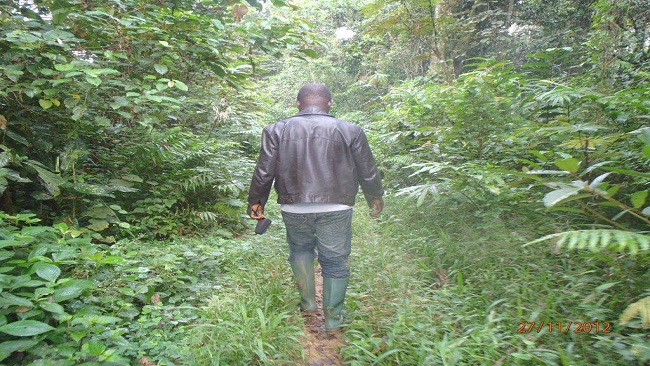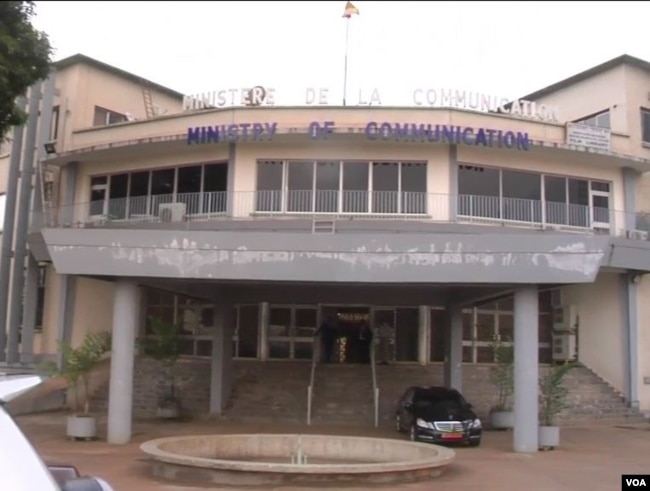Cameroon Journalists Decry Intimidation, Detention by Both Government, Separatist Fighters
On the occasion of World Press Freedom Day, journalists in Cameroon are protesting what they said are abuses by both the government and separatists fighting for the independence of the English-speaking areas from the majority French-speaking state. More than two dozen journalists said they have been arrested or threatened since the separatist conflict began.
Hundreds of English-speaking journalists in Cameroon took part in conferences and peaceful protests Friday, to talk about their experiences covering the separatist conflict in the English-speaking areas.
Journalist Geraldine Fobang, president of the Cameroon Community Media network, says police detained her on March 14 for leading journalists in a peaceful march demanding their rights be respected.
“I stayed under incarceration for over three hours. I was molested and intimidated. The atmosphere is not free and fair for us to practice journalism. We are just afraid,” Fobang said. “It is my wish that stake holders give peace a chance and provide us an enabling environment to practice as journalists.”
Journalist Macmillan Ambe said he was abducted by separatist fighters in the city of Bamenda last February after he criticized their call for families to keep their children out of school.
“They followed my TV productions over Waka Africa TV and they said I was canvassing for school resumption,” Ambe said. “When you do an article, separatists or the military would want to get facts to show that you are supporting A in this article or that you are supporting B in this article, and at the end of the day it becomes very worrying.”
The Cameroon Association of English Speaking Journalists said many reporters in the northwest and southwest English-speaking regions have either abandoned their profession or fled to safer localities.
Amos Fofung, former reporter with the Guardian Post newspaper, fled to the United States after he was arrested with three other journalists and detained in a prison in Yaounde for six months.
He said he was released after authorities investigated all his articles and social media accounts.
“The day I was actually released I was told that I should refrain from reporting the anglophone crisis and that is why after my release, I decided to stay mute,” Fofung said.
Since the separatist crisis began in 2017, at least 15 journalists report they have been threatened by separatists.
Authorities meanwhile have arrested at least 12 reporters and charged them with terrorism or propagating false information. All but one have been released.
Didier Kaba, director in charge of media affairs at Cameroon’s ministry of communication, rejects the idea journalists are persecuted by the government.
Kaba said the fact that Cameroon has more than than 500 newspapers, 150 radio stations and 20 television channels, indicates the media is thriving and that journalists practice their profession without any intimidation.
However, in its 2019 World Press Freedom Index, Reporters Without Borders ranked Cameroon 131st in the world, down two places from 2018. It said arbitrary detention and prosecution of journalists continue to be frequent.
Source: VOA







